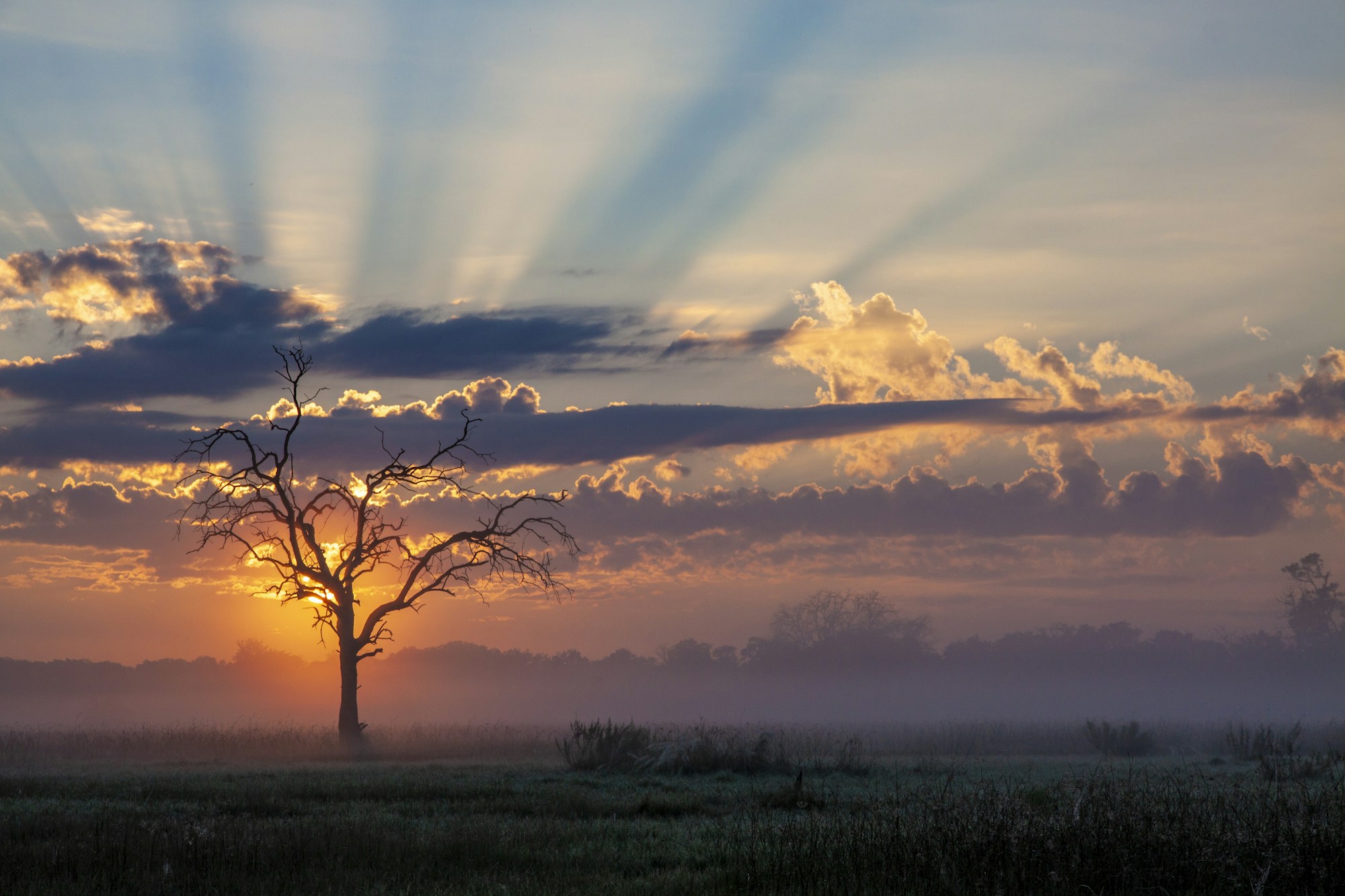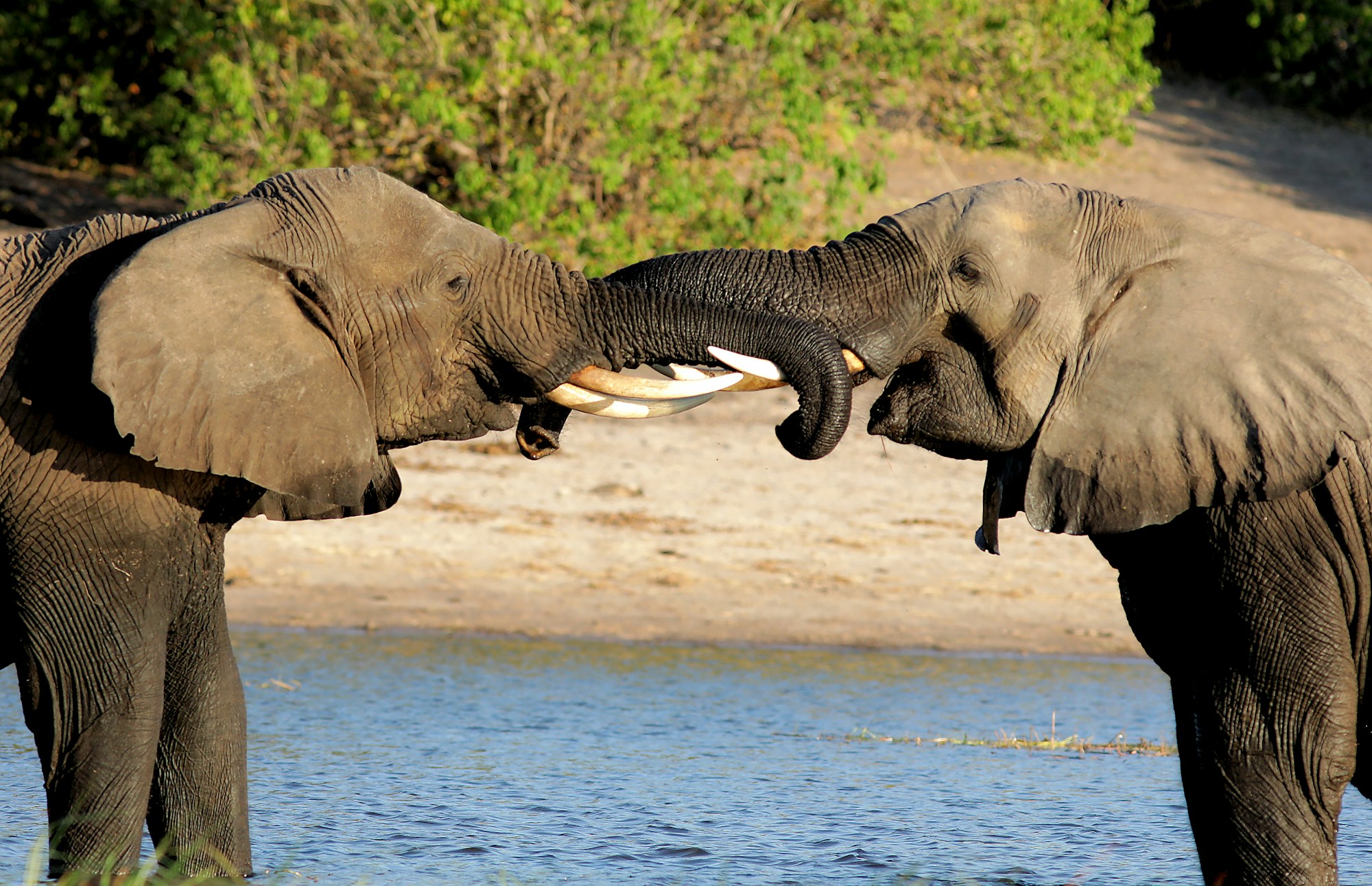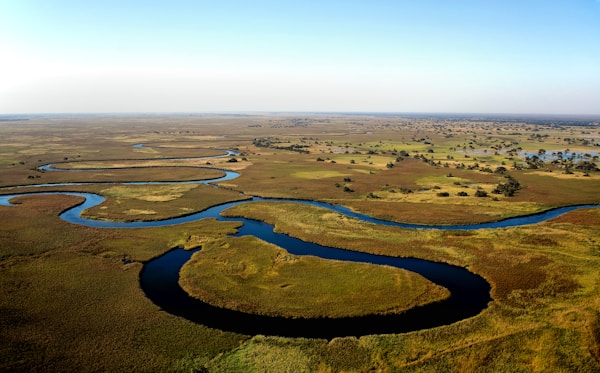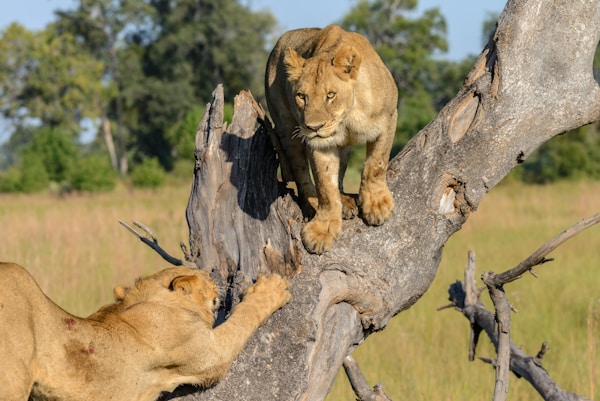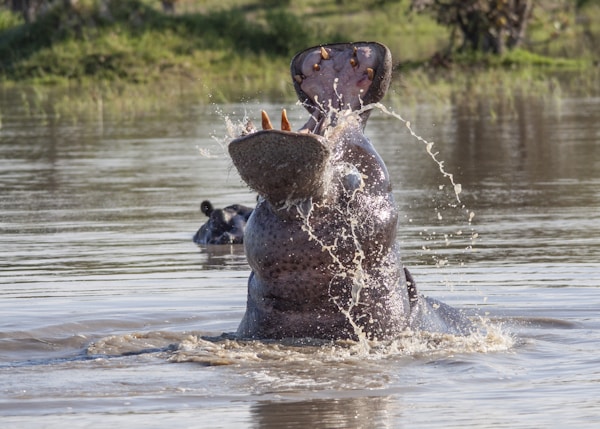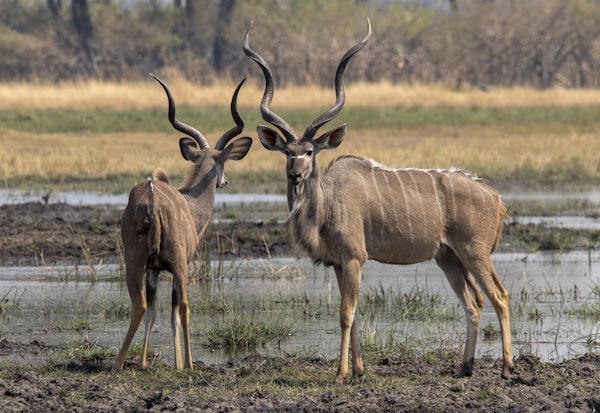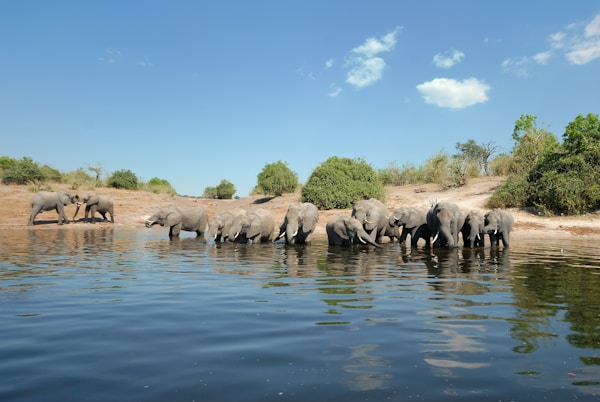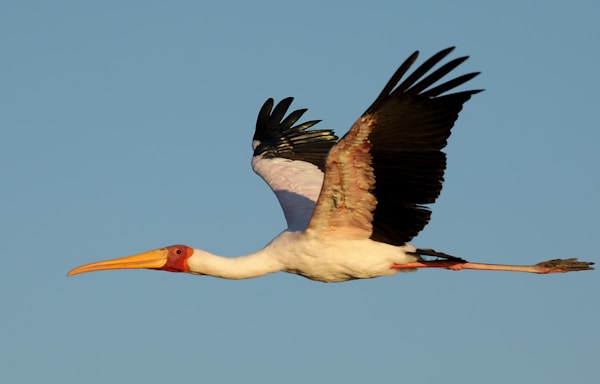Bush Flight: Maun to Moremi
Please note that luggage and weight restrictions apply on this light aircraft flight (20kg/44lbs total). No hard suitcases; soft-sided duffel bags only (dimensions must not exceed 10in x 12in x 24in).
Dumela & Welcome to Botswana! Your safari begins today at the Maun Airport around 1pm with a scenic bush flight to the Moremi Game Reserve. Our representative will greet you with a warm Botswana welcome when you arrive at the Maun Airport. You will then meet your pilot for the stunning light aircraft scenic flight over the Okavango Delta and Chief’s Island. This flight gives you a fish eagle’s eye view of this amazing ecosystem.
When you land at your remote bush airstrip within the Moremi Game Reserve, your guide will meet you for the transfer to your first mobile camp with a game drive en route. The friendly, attentive camp staff will help you feel immediately at home and brief you on what to look forward to on your safari. The magic of a mobile camp becomes apparent as the sun sets and you enjoy drinks around the fire before a starlit dinner and a great night’s rest after falling asleep to the sounds of the African bush.
You'll spend two nights camping in the Xakanaxa / Third Bridge area of Moremi as you explore the surrounding wilderness on game drives during the day.
Moremi Game Reserve
Moremi Game Reserve, situated in the central and eastern areas of the Okavango Delta, boasts one of the richest and most diverse ecosystems on the African continent. Moremi protects nearly a third (1930 sq miles) of the Okavango, the largest inland delta in the world with exceptionally picturesque landscapes and filled with abundant life. Verdant floodplains, (seasonal or perennially wet), waterways and lagoons cut through lush vegetation. Palm trees reach up from islands, parting the mists of early mornings. Open plains team with game and riverine and mopane forests cast cool shade over the heated earth.
These varied habitats provide sanctuary to the prolific year-round wildlife population and over 450 species of birds. Rare sitatunga and lechwe antelope thrive in the papyrus banks of the ancient waterways while large herds of impala and tsessebe graze on dry land. This is superb lion and elephant territory and one of the best places in Africa of seeing the rare African wild dog. Other wildlife includes leopard, giraffe, buffalo, cheetah, warthog, and a wide variety of antelopes.
The seasonal flood from the Angola Highlands that feeds the Okavango Delta system is the heartbeat of Botswana. Seeping along the panhandle and into the largest inland delta system in the world, the water creates a uniquely beautiful UNESCO World Heritage Site. From March the waters spread outwards, reaching the inner delta by June, and peaking in July and August. The inbound flow creates a buzz of energy as it spans out towards Maun with the entire country conscious of the gift the waters bring and caught up in the primordial movement.
Depending on nature’s temperamental dictates, the flood levels vary each year. This makes it difficult to assess what will happen in the upcoming season as the Delta may swell up to 3 times its size. As the flood waters spread across the Delta, the land renews itself and the landscape of channels, grasslands, reed islands and lagoons burst with life and vitality. As the levels recede in October, the earth starts to dry, altering the scenery and the game viewing. The summer rains in November & December rains come announce the green season, and the land becomes lush and verdant once again. Whether flood or rain, water, the very essence of life, plays a vital role in the Okavango Delta.
A Typical Day on Safari
A mobile safari is an all-encompassing experience. From the moment you enter Moremi you are surrounded by an incredibly unspoiled wilderness area, so even the transfers to the campsites are part of your safari adventure! We believe a camping safari brings you closer to the wilderness and provides an immersive experience of the African bush. A mobile camping safari is flexible, and we maximize each day by being out in the field most of the time. Your safari is all about discovery and exploration as you travel across the landscape learning about the wildlife, conservation, and cultures of this special country. Activities vary in different areas, but your day predominantly follows the same routine, except for transfer days where you move campsites.
The day starts with the rising of the sun. Your wake-up call will be between 5am and 6am – a gentle “koko” (knock-knock in Setswana) at the entrance of your tent. A camp assistant will be on hand to fill your wash-hand basin with steaming hot water and freshly made tea and coffee will be served around the campfire. A light breakfast will be served before the early morning game drive which consists of tea, coffee, juice, rusks, fruit, cereal, toast, and jams.
We head out as early as is permitted in the reserve to be the first on the roads to track fresh spoor left from the animal's overnight activities – we may spot fresh lion tracks walking straight past the camp or evidence of a passing herd of buffalo not far away. Your guide will assess the best area to explore depending on what calls were heard during the night as well as the tracks found on the road. Then we’re off to investigate further. Part of the unique appeal of Botswana is that the wildlife moves naturally, and you are ‘searching’ for them, which can lead to the most amazing sightings and a great appreciation and respect for the bush.
Having spent the morning exploring the surrounding wilderness in search of Botswana’s hidden treasures, you will return to camp for lunch under the shade of a marula tree (if the elephants haven’t pushed them all over!). Lunch consists of salads, freshly baked bread on the open campfire, cold meats, and pickles. Just as the animals retreat to escape the heat of mid-day, so will you. This is your time to enjoy reading, chatting, relaxing or taking a nap.
Later in the afternoon you will head out into the wilderness once more as the animals awake from their days’ slumber and gather at the watering holes. As the sun sets on the horizon, one can only marvel at the sheer splendor of an African sunset and with refreshments in hand, toast to the wonder of nature.
On your return to camp, enjoy a hot shower under the starry night sky and gather around the warmth of the campfire to relive the day’s events and excitement. A three-course dinner is served with South African wines against the magical backdrop of the African night sky. Retreating to the comfort of your tent after enjoying a nightcap around the campfire, you can fall asleep to the calls of the African wild.
On moving days, the safari team will pack down the camp, then travel to the next camp site and prepare the camp at the next location. When traveling between locations, the route is most commonly through the parks and reserves and is therefore an extension of your daily game drives. A picnic lunch will be served en-route.
Meals on Safari: All meals are prepared for you over an open fire, whetting your appetite with tantalizing aromas as we cook hearty and healthy bush cuisine. Meals can either be taken at a set dining table or enjoyed in a relaxed manner around the campfire. Evenings are spent relaxing and star gazing, as the guide/camp assistant takes care of cleaning up after dinner. Food is always plentiful on safari and we provide a hearty, international style of bush cuisine – all prepared over an open fire. We do cater to dietary restrictions (vegetarian, etc).
Breakfast - generally a light breakfast is served of cereals, toast, fruit and rusks (biscuits) with tea/coffee.
Morning tea - tea/coffee and cake or rusks.
Lunch - generally salads, cold meats, cheese and bread with fruit.; however, on some mornings we may do a cooked brunch.
Afternoon tea - tea/coffee and cake or rusks.
Sundowner – Enjoy beer or wine and light snacks as you watch the sun set.
Dinner - generally a hearty meal is served combining meat and vegetables. Examples of meals include braai (barbeque), fillet with vegetables, chicken and vegetable stir fry, spaghetti bolognaise, beef and vegetable casserole.
Tea and coffee is served with 'something sweet'. Fruit and light snacks are always available as is tea, coffee, and water. Local beer, wine, and soft drinks are included.

